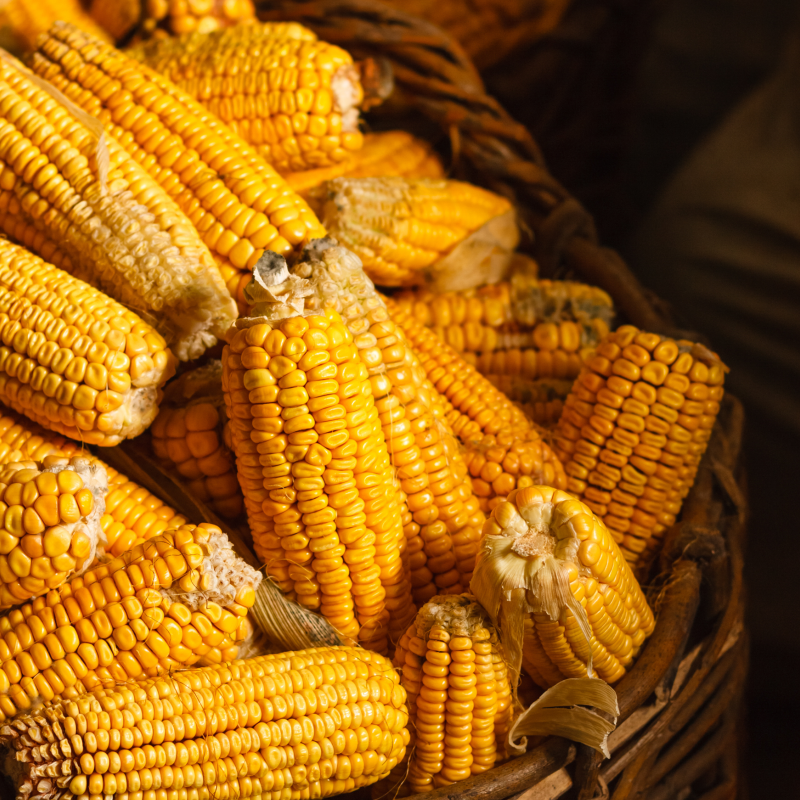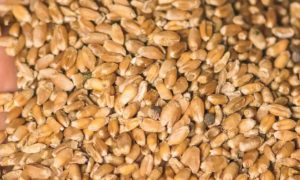ENVIRONMENTAL ASSESSMENT FOR GMO MAIZE UNDERWAY IN OSHIKOTO

An environmental assessment is underway for introducing GMO maize and irrigation activities at Farm Heidelberg-Sued in Namibia’s Oshikoto Region. Geo Pollution Technologies is conducting the assessment, evaluating the impact of GMO maize on transport, storage, planting, and crop management. Namibia currently avoids GMO cultivation, focusing on traditional and organic farming. The Ministry of Agriculture emphasizes that while GMO imports are regulated under the Biosafety Act of 2006, GMO cultivation remains cautious. The impact assessment will guide any potential changes in cultivation practices.
Hertta-Maria Amutenja
An environmental assessment is currently being carried out for the release of genetically modified organisms (GMO) maize and irrigation-based agricultural activities at farm Heidelberg-Sued in the Oshikoto Region.
Heidelberg 291 CC has appointed Geo Pollution Technologies (Pty) Ltd. to conduct this assessment.
Farm Heidelberg-Sued currently irrigates 50 hectares using centre-pivot irrigation systems, sourcing water from registered boreholes on the farm.
The main crop is maize, and there is a proposal to replace traditional maize cultivars with genetically modified strains that are resistant to insects and/or herbicides.
The assessment covers activities related to the transport, storage, and planting of both traditional and GM maize seeds, as well as crop management, pesticide application, harvesting, and the handling and transport of produce to markets.
Namibia has not adopted the cultivation of GMO crops, focusing instead on traditional and organic farming with an emphasis on sustainability and biodiversity preservation.
The Ministry of Agriculture, Water, and Land Reform’s deputy director of public relations, Chrispin Matongela, said that research is essential to weigh options, and environmental impact assessments are crucial to understand and mitigate potential risks associated with GMOs.
When asked if the Ministry of Agriculture is considering increasing GMO food production due to drought, Matongela reiterated that Namibia has not adopted GMO cultivation.
“Conducting an environmental impact assessment helps to evaluate the possible environmental impact of GMO cultivation and the pros and cons of it, “he said.
He added that the country is exercising caution in the adoption of genetically modified organisms.
The importation of GMOs is governed by the Biosafety Act of 2006, which controls the import, use, and cultivation of GMOs to minimise risks to human health and the environment.
According to Matongela, the importation of GMO products is allowed but subject to strict regulation and must be approved by the National Biosafety Council.
In Namibia, the current labelling criteria for GM food and feed is 0.9 percent.
“The approval process involves risk assessments to ensure that the GMO products do not pose significant risks to the health of consumers and the environment. The competent authority concerning GMOs is the Namibia Commission on Research and Technology, where the Biosafety Act lies,” said Matongela.
Regarding whether GMO foods will be exported or consumed locally, Matongela stated that an impact assessment will determine whether cultivation will proceed.
Last year, the National Commission on Research, Science and Technology (NCRST) received 69 applications for placing genetically modified products on the market.
Consumers have a choice about whether to consume GMOs or not, as all products have to be labelled as such.
The NCRST’s national GMO testing laboratory tests products such as maize, wheat and sunflower just to see whether there are GMO traces.
The public participation in the notice was issued on 21 June.
Source Link : https://www.observer24.com.na/environmental-assessment-for-gmo-maize-underway-in-oshikoto/
















